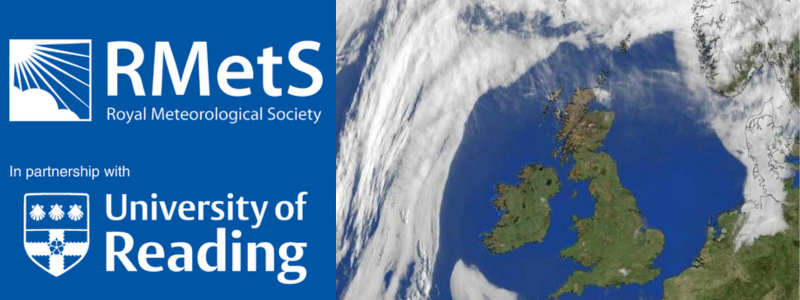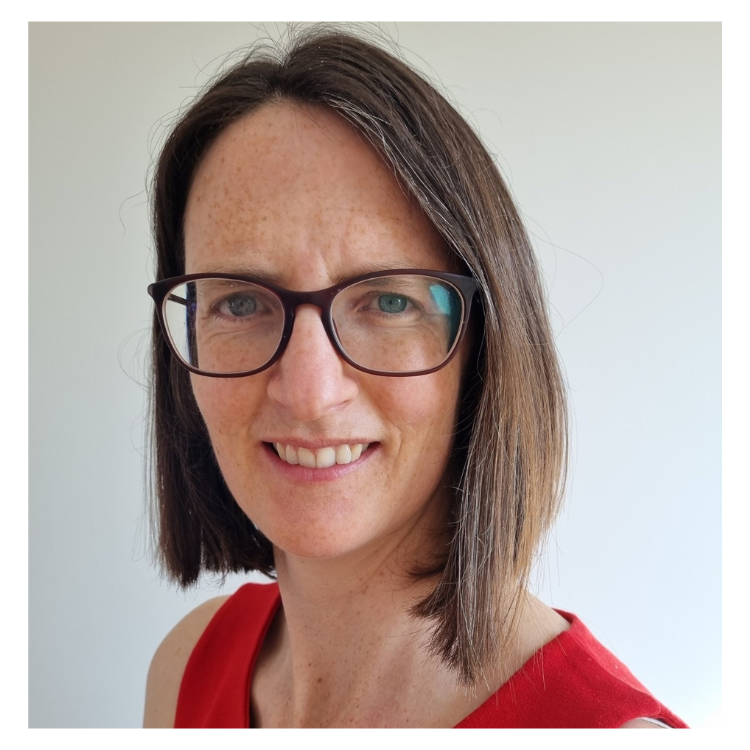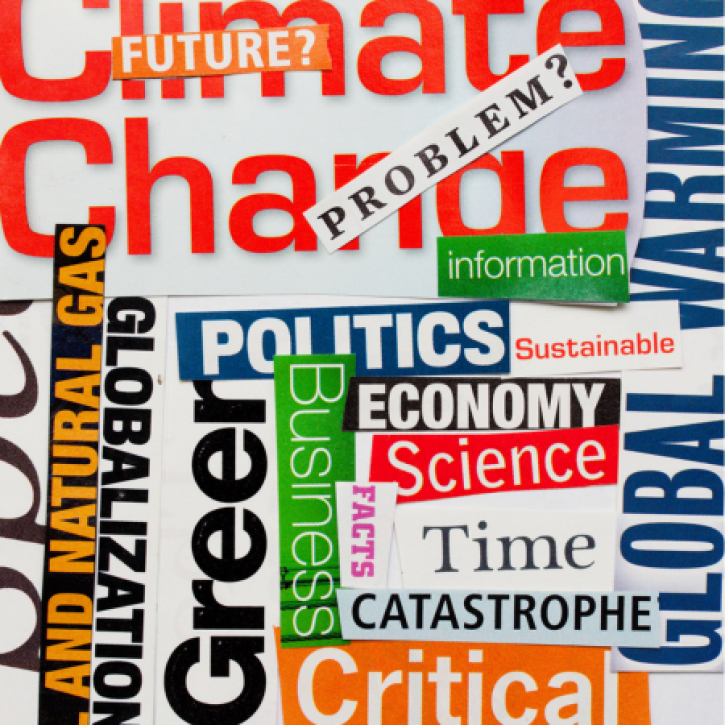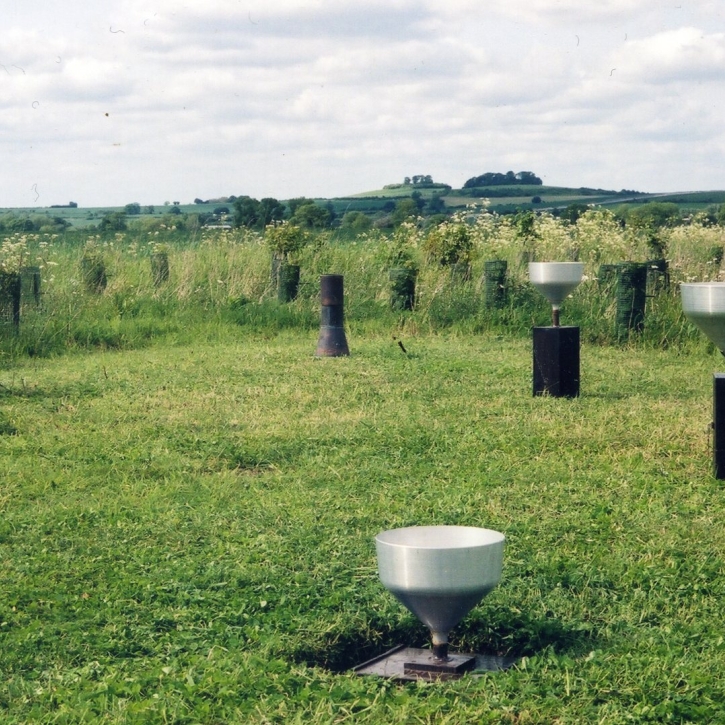

Masterclass | Representation of Blocking in Models and Climate Projections
LOCATION
Virtual - Hosted on Zoom
Adequately representing atmospheric blocking in climate models is important because of the different surface impacts associated with blocking such as heatwaves, drought, cold spells, wind droughts, and heavy precipitation; and the need to determine how blocking and blocking impacts may be changing under global warming. This lecture will cover the following topics:
1. What are the different types of blocking and how are they identified in observational data and model simulations?
2. How has blocking varied historically and how are these variations represented by climate models?
3. How are different characteristics of climate models related to the models’ ability to represent blocking?
4. How is blocking projected to change under global warming, and how confident can we be in these projections?
Speaker
Associate Professor Reinhard Schiemann
 Reinhard Schiemann is Associate Professor at the National Centre for Atmospheric Science at the University of Reading. He studied Physics at the University of Leipzig and obtained his PhD from ETH Zurich. Reinhard’s research focusses on extreme events like heavy rainfall, droughts, and heatwaves, and on how these extremes are changing under global warming. Reinhard also invests in community climate model simulations, creating novel large-ensemble and high-resolution simulations, with the UK Met Office as a key partner.
Reinhard Schiemann is Associate Professor at the National Centre for Atmospheric Science at the University of Reading. He studied Physics at the University of Leipzig and obtained his PhD from ETH Zurich. Reinhard’s research focusses on extreme events like heavy rainfall, droughts, and heatwaves, and on how these extremes are changing under global warming. Reinhard also invests in community climate model simulations, creating novel large-ensemble and high-resolution simulations, with the UK Met Office as a key partner.
Responder
Emily Wallace
 As a Fellow in Weather and Climate Extremes at the Met Office Emily’s role is to empower government, industry and the public to deal with extreme weather and remain safe and resilient in our changing world. This includes leading our rapid climate attribution service, providing insights to our public weather service on the role of climate change in extreme weather and developing better understanding of the impacts of extreme weather.
As a Fellow in Weather and Climate Extremes at the Met Office Emily’s role is to empower government, industry and the public to deal with extreme weather and remain safe and resilient in our changing world. This includes leading our rapid climate attribution service, providing insights to our public weather service on the role of climate change in extreme weather and developing better understanding of the impacts of extreme weather.
This builds on a career leading service delivery into the energy sector and for other critical infrastructure. Here she has championed use of weather and climate modelling to support clean and reliable infrastructure design and operation. This has included use of meteorological information from weather, seasonal and climate timescales to advise on future energy networks, network resilience, renewable energy projects, and nuclear safety and design.
Registration
REGISTRATION IS NOW OPEN.
Registration for this event is available virtually.
Please note that our registration process has recently changed:
Members
If you are a member of the Society and have an account already, please log in to your account before your register. If you are a member and don’t have an account set up already, you will need to create an account. Your username is the email address that is linked to your membership.
Non-Members
If you are not a member of the Society you will need to create an account in order to register for events.
Once you have created an account, you will be required to log in each time you would like to register for an event. You will also have access to a Dashboard area that will show which events you have registered for and past events you have attended.
Any information you provide to us will only be used by The Royal Meteorological Society and appointed representatives.
This meeting is part of the Royal Meteorological Society Meetings programme, open to all, from expert to enthusiast, for topical discussions on the latest advances in weather and climate. Free to attend. Non-members are welcome.
A copy of our terms and conditions can be found here
If you have any queries with regards to this event or require any further information please contact us at meetings@rmets.org
Masterclass Series Abstract
Continuing our online Meteorological Masterclasses in partnership with the University of Reading, we are pleased to announce a new Masterclass series in “Atmospheric Blocking: Dynamics, Predictability, Impacts and Climate
During this series, three leading experts from the University of Reading will discuss the latest scientific advances for understanding and predicting weather, climate, and its impacts. Topics to be covered include the fundamentals of blocking, anticipating climate risk in infrastructure using atmospheric circulation patterns and representation of blocking in modes and climate projections.
These masterclasses are intended to provide support for professionals working in Meteorology and Climate Science, and its operational applications who wish to remain up to date on recent scientific developments in the field.
Masterclasses will run weekly on Wednesday’s 18 October, 01 November and 08 November 2023 from 3 pm to 4.30 pm (UTC), consisting of a presentation followed by the opportunity for questions and discussion with the speaker. Whilst the webinars are part of a series, attendance at all three events is not compulsory.
They are aimed at an audience with an already established level of understanding of the topics to support with their CPD. Ideal for RMets, CMets and relevant organisations.
Sessions will be available as videos for any member who has registered but cannot attend. All registrants will have an option to email questions up to one week after the date of them going live.
Adequately representing atmospheric blocking in climate models is important because of the different surface impacts associated with blocking such as heatwaves, drought, cold spells, wind droughts, and heavy precipitation; and the need to determine how blocking and blocking impacts may be changing under global warming. This lecture will cover the following topics:
1. What are the different types of blocking and how are they identified in observational data and model simulations?
2. How has blocking varied historically and how are these variations represented by climate models?
3. How are different characteristics of climate models related to the models’ ability to represent blocking?
4. How is blocking projected to change under global warming, and how confident can we be in these projections?
Speaker
Associate Professor Reinhard Schiemann
 Reinhard Schiemann is Associate Professor at the National Centre for Atmospheric Science at the University of Reading. He studied Physics at the University of Leipzig and obtained his PhD from ETH Zurich. Reinhard’s research focusses on extreme events like heavy rainfall, droughts, and heatwaves, and on how these extremes are changing under global warming. Reinhard also invests in community climate model simulations, creating novel large-ensemble and high-resolution simulations, with the UK Met Office as a key partner.
Reinhard Schiemann is Associate Professor at the National Centre for Atmospheric Science at the University of Reading. He studied Physics at the University of Leipzig and obtained his PhD from ETH Zurich. Reinhard’s research focusses on extreme events like heavy rainfall, droughts, and heatwaves, and on how these extremes are changing under global warming. Reinhard also invests in community climate model simulations, creating novel large-ensemble and high-resolution simulations, with the UK Met Office as a key partner.
Responder
Emily Wallace
 As a Fellow in Weather and Climate Extremes at the Met Office Emily’s role is to empower government, industry and the public to deal with extreme weather and remain safe and resilient in our changing world. This includes leading our rapid climate attribution service, providing insights to our public weather service on the role of climate change in extreme weather and developing better understanding of the impacts of extreme weather.
As a Fellow in Weather and Climate Extremes at the Met Office Emily’s role is to empower government, industry and the public to deal with extreme weather and remain safe and resilient in our changing world. This includes leading our rapid climate attribution service, providing insights to our public weather service on the role of climate change in extreme weather and developing better understanding of the impacts of extreme weather.
This builds on a career leading service delivery into the energy sector and for other critical infrastructure. Here she has championed use of weather and climate modelling to support clean and reliable infrastructure design and operation. This has included use of meteorological information from weather, seasonal and climate timescales to advise on future energy networks, network resilience, renewable energy projects, and nuclear safety and design.
Registration
REGISTRATION IS NOW OPEN.
Registration for this event is available virtually.
Please note that our registration process has recently changed:
Members
If you are a member of the Society and have an account already, please log in to your account before your register. If you are a member and don’t have an account set up already, you will need to create an account. Your username is the email address that is linked to your membership.
Non-Members
If you are not a member of the Society you will need to create an account in order to register for events.
Once you have created an account, you will be required to log in each time you would like to register for an event. You will also have access to a Dashboard area that will show which events you have registered for and past events you have attended.
Any information you provide to us will only be used by The Royal Meteorological Society and appointed representatives.
This meeting is part of the Royal Meteorological Society Meetings programme, open to all, from expert to enthusiast, for topical discussions on the latest advances in weather and climate. Free to attend. Non-members are welcome.
A copy of our terms and conditions can be found here
If you have any queries with regards to this event or require any further information please contact us at meetings@rmets.org
Masterclass Series Abstract
Continuing our online Meteorological Masterclasses in partnership with the University of Reading, we are pleased to announce a new Masterclass series in “Atmospheric Blocking: Dynamics, Predictability, Impacts and Climate
During this series, three leading experts from the University of Reading will discuss the latest scientific advances for understanding and predicting weather, climate, and its impacts. Topics to be covered include the fundamentals of blocking, anticipating climate risk in infrastructure using atmospheric circulation patterns and representation of blocking in modes and climate projections.
These masterclasses are intended to provide support for professionals working in Meteorology and Climate Science, and its operational applications who wish to remain up to date on recent scientific developments in the field.
Masterclasses will run weekly on Wednesday’s 18 October, 01 November and 08 November 2023 from 3 pm to 4.30 pm (UTC), consisting of a presentation followed by the opportunity for questions and discussion with the speaker. Whilst the webinars are part of a series, attendance at all three events is not compulsory.
They are aimed at an audience with an already established level of understanding of the topics to support with their CPD. Ideal for RMets, CMets and relevant organisations.
Sessions will be available as videos for any member who has registered but cannot attend. All registrants will have an option to email questions up to one week after the date of them going live.





